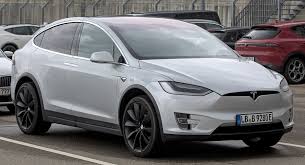Chinese electric vehicle (EV) manufacturer BYD has reported a remarkable 60% increase in sales for the first quarter of 2025, solidifying its position as a formidable competitor to industry leader Tesla. The Shenzhen-based company sold over one million new energy vehicles (NEVs) during this period, encompassing battery electric vehicles (BEVs), plug-in hybrids, and commercial vehicles. Sales of pure BEVs surged by 39% to more than 416,000 units.
This surge in sales has propelled BYD's annual revenue to a record $107 billion, surpassing Tesla's 2024 revenue of $97.7 billion. Tesla, in contrast, experienced a 1.1% decline in annual deliveries last year.

BYD's Expansion and Tesla's Challenges
While the majority of BYD's sales have been within China, the company is aggressively expanding into international markets, including Europe, Southeast Asia, and South America. In Europe, BYD is constructing manufacturing plants in Hungary and Turkey, with the Hungarian facility expected to commence operations later this year and the Turkish plant slated for production in March 2026.
In contrast, Tesla has faced significant challenges in the European market. In March 2025, Tesla's car sales in Germany plummeted by 42.5%, with only 2,229 vehicles sold. This decline is part of a broader trend, with first-quarter sales in Germany dropping 62.2% year-over-year to 4,935 units. Contributing factors include intensified competition, negative public sentiment due to CEO Elon Musk's political activities, and customer anticipation for updates to the Model Y.
Tesla's UK market has also seen a decline, with the company's market share dropping from one in seven EV registrations to one in ten. This stall coincides with a broader European trend of declining Tesla sales, attributed to public disapproval of Musk's political ties and interventions. Despite Tesla's slowed momentum, the UK saw record EV sales in March, indicating growing consumer demand.

Future Predictions
Analysts from Wells Fargo predict that Tesla's stock could drop another 50%, citing challenges such as disappointing vehicle deliveries, declining earnings, skepticism about the timely availability of a low-cost model, doubts regarding the safety and efficacy of Tesla’s autonomous Cybercab service, and an unattractive valuation compared to its tech peers.
The decline in Tesla's sales and market share is partly attributed to CEO Elon Musk's political engagements, including his support for former President Donald Trump. This alliance has alienated Tesla's traditional liberal customer base and led to protests, vandalism, and consumer boycotts. In the first quarter of 2025, Tesla delivered 336,681 vehicles—a 13% year-over-year drop and below Wall Street expectations.
In contrast, BYD's aggressive expansion and innovative offerings have positioned it as a formidable competitor in the global EV market. The company's focus on international markets and continuous innovation may further solidify its standing in the industry.




